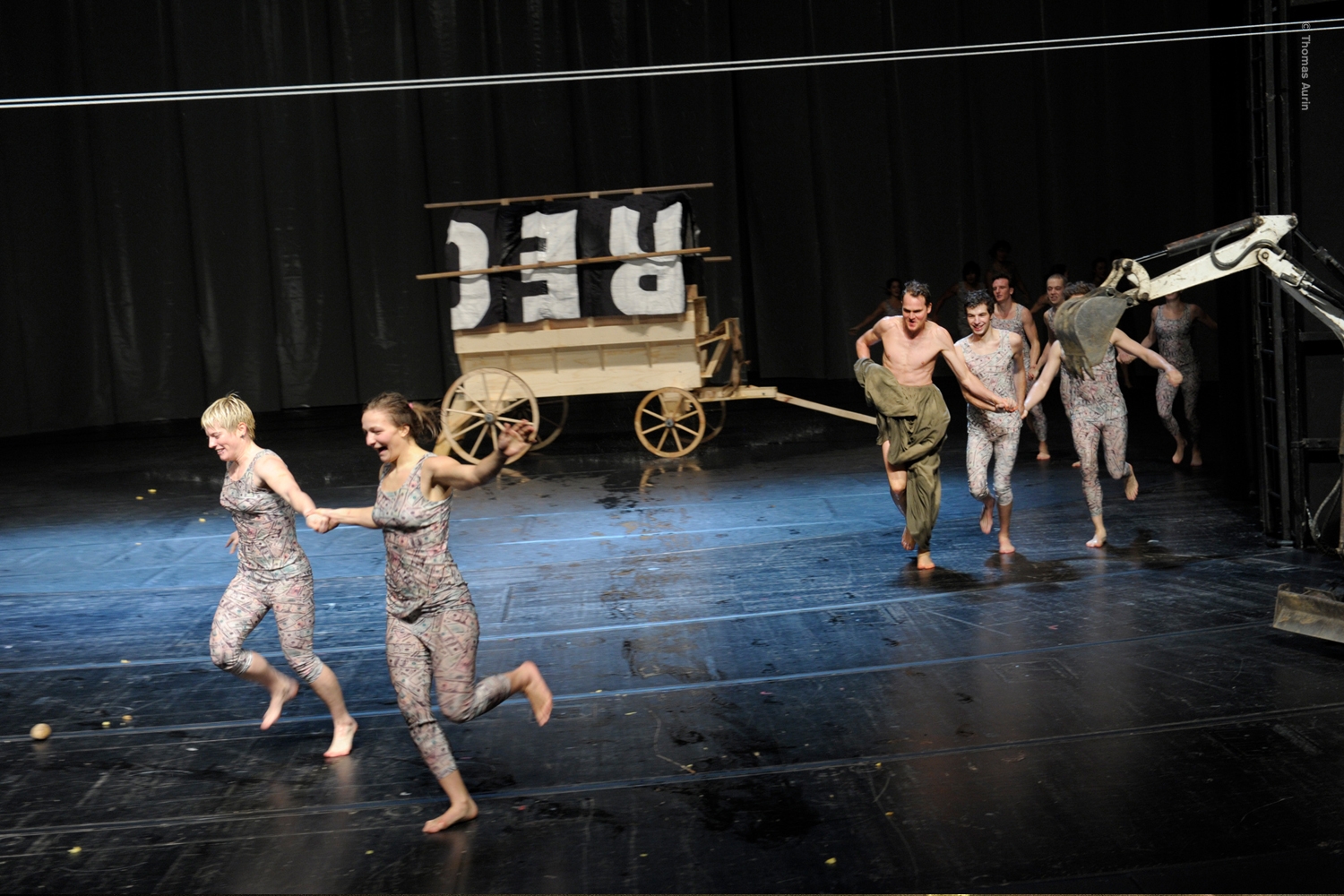


If one notices the precision, with which Döblin describes the world of Franz Biberkopf in „Berlin Alexanderplatz“ (every movement of the protagonists in the streets can be followed up on the map) and if one reads the extent to which time is of limited significance in this space (between the afternoon, when Mieze sees Reinhold walking up the stairs to her apartment and the afternoon when the two go on a day trip to Bad Freienwalde, exactly one year passes, yet both act as if they had seen each other only two days ago; its not the time, its the feelings that count), one gets a grasp, what Döblin was aiming at with his love of detail: not to draw an accurate picture of the Berlin of the year 1928, but to tell the story of a nightmare, which can only be appropriated when told in every detail. And looked at in this way (that in wonderland we all move in our own axioms of time and space), it doesn’t suprise, when Mieze “caresses the hands” of her Franz, whose arm was ripped of weeks earlier. Döblin himself actually gave a hint in the third book, to where he wants his novel to be settled, by moving the Berlin slaughterhouse from the “Thaer“ to the “Theater” street. (Lothar Trolle)
With: Bibiana Beglau, Max Hopp, Marc Hosemann, Iris Minich, Trystan Pütter, Alexander Scheer, Jeanette Spassova and Ludmilla Skripkina
Director: Frank Castorf
Stage and Costumes: Bert Neumann
Light design: Lothar Baumgarte
With: Bibiana Beglau, Max Hopp, Marc Hosemann, Iris Minich, Trystan Pütter, Alexander Scheer, Jeanette Spassova and Ludmilla Skripkina
Director: Frank Castorf
Stage and Costumes Supplier: Bert Neumann
Light Design: Lothar Baumgarte